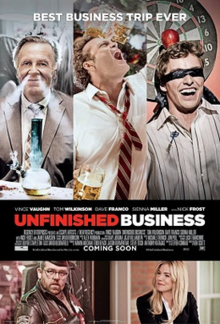Overhead Absorption: Nothing So Useless?
 According to Peter Drucker “There is nothing so useless as doing efficiently that which should not be done at all.” Many companies give themselves credit with each portion of their production process. Many experts have pointed out that this practice motivates managers to build inventory in order to receive overhead absorption credit. Some of these experts use this motivational tendency to advocate scrapping entire systems in favor of their process.
According to Peter Drucker “There is nothing so useless as doing efficiently that which should not be done at all.” Many companies give themselves credit with each portion of their production process. Many experts have pointed out that this practice motivates managers to build inventory in order to receive overhead absorption credit. Some of these experts use this motivational tendency to advocate scrapping entire systems in favor of their process.
While this tendency does exist, I would argue that it is only one part of an overall picture. One tendency does not invalidate a system. However, we should at least consider Peter Drucker’s advice. Here I will describe an example from semiconductor wafer fabrication. While from very specialized industry, the principles may apply in many other environments.
Semiconductor wafer fabrication starts with a thin slice of ultra-pure silicon crystal called a wafer. The process consists of masking off portions of the wafer similar to using masking tape when painting. Then material is either added to the wafer or removed from the wafer. After the masking material is removed, the process is repeated for the next layer, layer after layer, until the wafer is completed. At this point the wafer may be sold or continues with a sorting and assembly process. Production records the wafer batch progress with each operation. With each operation, there is a possibility of misprocessing or breakage.
We computed overhead absorption with every step in the process, adding cost to inventory and giving ourselves credit. We had incurred cost with each operation therefore we must have added value.
We had a mountain of accounting transactions, computing incremental cost and removing scrap impacts. Complementing the transactions, we had to reconcile inventory. Production control had nearly perfect records of every process but accounting for cost and yield increments were difficult. Yet we were very practiced, proficient, and efficient.
However, let’s take another perspective. Before the silicon wafer started into the process, we could have sold it to another company; it had value. However, with the very first operation, that of etching a batch number on the wafer, no one else would ever consider buying the wafer from us. In this sense, it became useless to anyone else; it had zero value. Although we continued processing the wafer, no one would buy it until the entire process was completed. Therefore, the first point that the wafer had any value to someone else was when the wafer was finished. So, where was value added that justified cost?
Should we have taken Peter Drucker’s advice and stopped doing all this very efficient recordkeeping? What if we had eliminated the thousands of individual cost accounting transactions and only recorded cost impacts with each finished wafer? Accounting transactions did not improve inventory control. They did risk giving overhead absorption credit for production not immediately needed.
In our defense, we only did what was common and acceptable in our industry. But should we have critically evaluated our record keeping. Perhaps our very efficient process should not have been done at all? Where are similar situations in your company where very efficient work should not be done at all?
